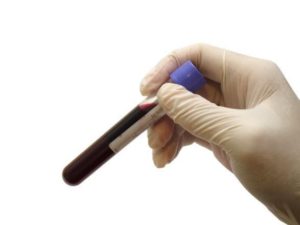
Marijuana DUI Blood Test
Marijuana DUI | Amendment 2
In November 2016, the citizens of Florida passed Amendment 2. Amendment 2 legalizes possession and use of marijuana for individuals who have been diagnosed with certain debilitating illnesses. It is common sense that marijuana use will increase given the passage of Amendment 2. Anticipating an increase in the use of marijuana, both recreationally and out of medical necessity, law enforcement must find a way to accurately test for impairment by marijuana to enforce the state’s impaired driving laws. You can find the latest news about cannabis at Midas Letter Cannabis Stock news.
Marijuana DUI Urine Testing | The Current Test
In Florida, it is nearly impossible for the state to get a conviction for DUI under a marijuana impairment theory. The state is typically limited to urine testing for drug impairment. A urinalysis alone cannot determine if an individual is impaired. Impairment by drugs is more accurately measured with a blood test. However, Florida law restricts an officer’s ability to obtain a blood test in a DUI case. A DUI conviction can result in serious penalties. A first time DUI is almost always a misdemeanor, but there are situations where the state will pursue felony charges.
Florida House Bill 237 | Marijuana DUI Blood Test
Florida House Bill 237 was introduced into the Florida House of Representatives by Representative Brandes on January 12, 2017. The purpose of the bill is to amend Florida Statute 316.193 by establishing a quantitative threshold of an active marijuana metabolite which, if established, would prove the crime of driving under the influence. This is like the .08 quantitative threshold for breathalyzer tests.
The specific amendment adds a subsection (d) to Florida Statute 316.193 (1). The proposed amendment reads as follows:
“A person commits the offense of driving under the influence and is subject to punishment as provided in subsection (2) if the person is driving or in actual physical control of a vehicle within this state and:
(1) (d) the person has a blood level of 9 nanograms or more of delta 9 tetrahydrocannabinol per milliliter of blood, as shown by an analysis of the person’s blood.”
DUI Blood Test|Typically Illegal
A police officer can request a breath or urine test to determine the presence of alcohol or a controlled substance when an individual has been arrested for driving under the influence. However, a police officer is not able to request a blood test in every instance. Florida law restricts a police officer’s ability to obtain a blood sample for testing in the vast majority of DUI cases. There are two exceptions that permit a police officer to obtain a warrantless blood draw from a suspect. Those exceptions are:
- Florida Statute 316.1932(1)(c) – “There is reasonable cause to believe the person was driving or in actual physical control of a motor vehicle while under the influence of alcoholic beverages or chemical or controlled substances and the person appears for treatment at a hospital, clinic, or other medical facility and the administration of a breath or urine test is impractical or impossible” and
- Florida Statute 316.1933(1)(a) – “If a law enforcement officer has probable cause to believe that a motor vehicle driven by or in the actual physical control of a person under the influence of alcoholic beverages, any chemical substances, or any controlled substances has caused the death or serious bodily injury of a human being, a law enforcement officer shall require the person driving or in actual physical control of the motor vehicle to submit to a test of the person’s blood for the purpose of determining the alcoholic content thereof or the presence of chemical substances as set forth in s. 877.111 or any substance controlled under chapter 893. The law enforcement officer may use reasonable force if necessary to require such person to submit to the administration of the blood test. The blood test shall be performed in a reasonable manner. Notwithstanding s. 316.1932, the testing required by this paragraph need not be incidental to a lawful arrest of the person.”
It is important to note that an individual can refuse a test under the circumstances set forth in Florida Statute 316.1932(1)(c). However, a police officer is required to perform a blood draw under the circumstances set forth in Florida Statute 316.1933(1)(a). Under the latter, the officer is permitted to use force to obtain the blood sample.
The proposed amendment to the DUI statute contained in Florida House Bill 237 is ineffective and will have no or minimal impact in DUI prosecutions. When an officer suspects drug use in a DUI case, the implied consent statute permits the officer to request a urine test to determine the presence of a controlled substance. However, the proposed amendment specifically states that a blood sample is required. There are no legal means for an officer to collect a blood sample in the overwhelming majority of cases today. House Bill 237 does not provide any additional legal means for an officer to obtain a blood sample and is, therefore, essentially useless.
For additional information, please contact us at:
The Law Offices of Michael A. Dye, PA, 1 East Broward Boulevard #700, Fort Lauderdale, FL 33301 (954)990-0525





